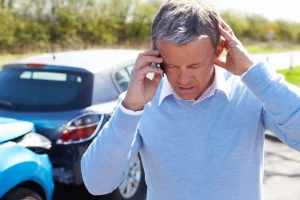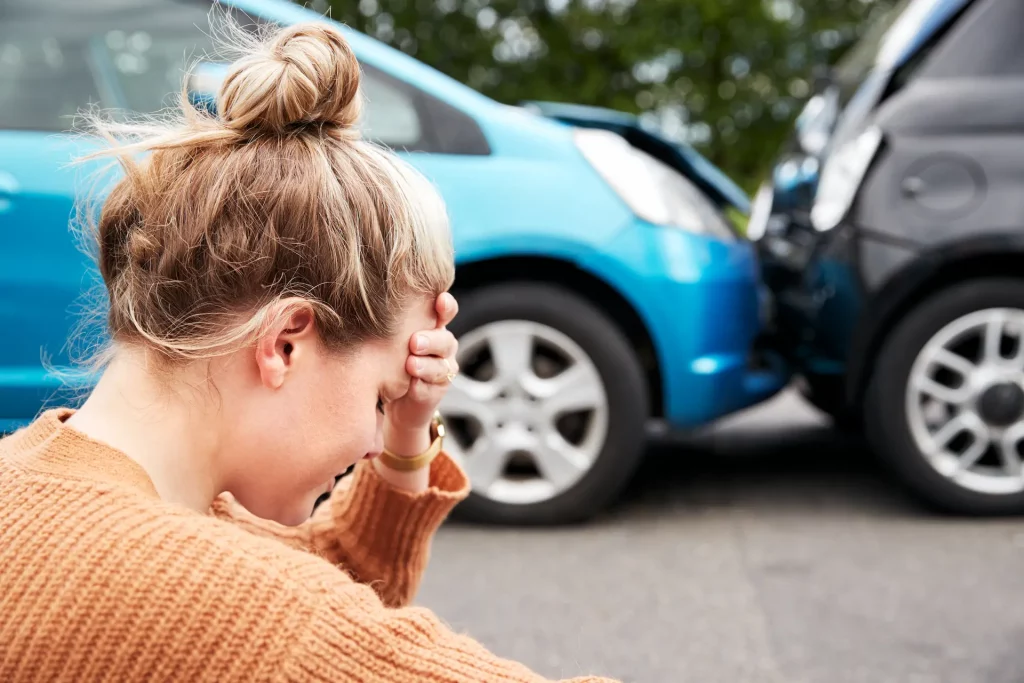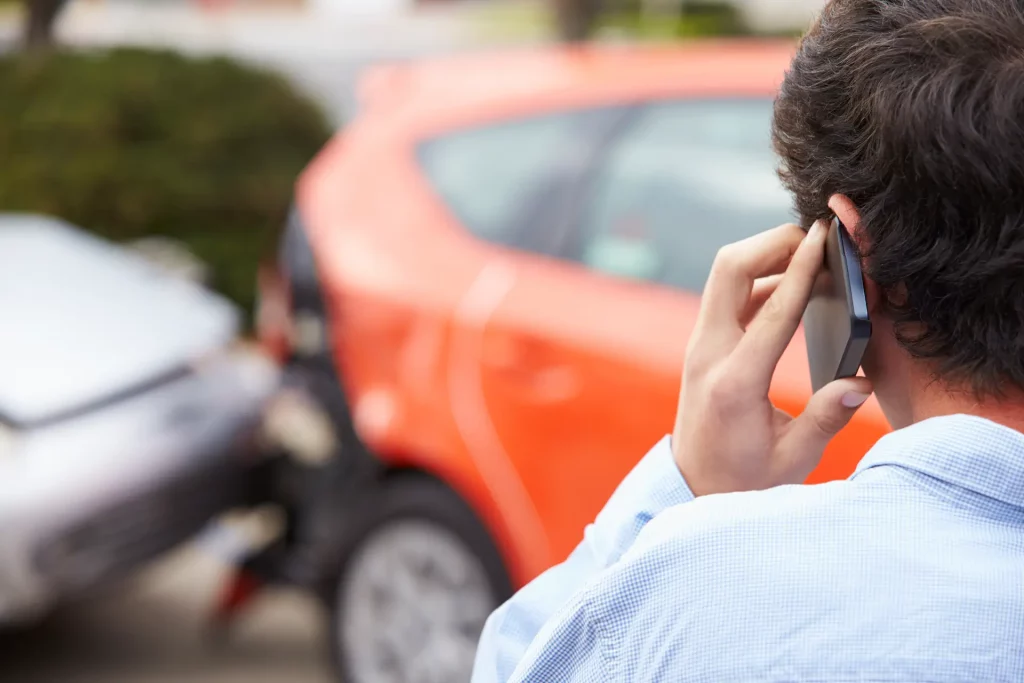What Happens if You Get in an Accident While in an Uber in Houston?

The bustling streets of Houston provide an ideal setting for rideshare services, such as Uber and Lyft, to thrive. Whether it’s a quick ride to nearby shops, a safe journey home after a night out, or a convenient airport transfer, these modern-day essentials have become an integral part of people’s lives.
However, with an increase in the number of rideshare vehicles on the road, there comes an associated increase in the risk of accidents with rideshare drivers. So what happens if you are involved in an Uber accident in the city of Houston? Keep reading to find out, and always feel free to reach out to The Callahan Law Firm to schedule a free consultation and discuss your situation.
What Should You Do If You Get into an Uber Accident?
In the unsettling event of an Uber accident, knowing the appropriate steps to take can significantly impact your safety and the potential outcome of any subsequent legal or insurance claims. Consider taking the following steps:
- Ensure safety first: Check if you, your child, or any other individuals involved are injured and in need of immediate medical attention. If possible, move out of the way of additional danger, like oncoming traffic.
- Call 911: Always call 911 to report the accident so law enforcement can come to the scene and create an official accident report.
- Gather information: Collect contact and insurance information from the Uber driver and any other involved drivers. Also, obtain contact information for any other passengers involved.
- Document the scene: Take photos of the accident scene, vehicle damages, and any injuries sustained.
- Report the accident to Uber: Use the Uber app to report the incident, providing as many factual details as possible. Don’t make any statements regarding fault or guilt.
- Seek legal counsel: Consult a personal injury attorney with experience in Uber accident cases to guide you through the process of recovering compensation.
After an Uber accident, seeking legal advice is crucial to ensure your rights are protected and you are properly supported through the post-accident process.
The Insurance Requirements for Being an Uber or Lyft Driver

Texas law stipulates minimum insurance requirements for drivers, known as 30/60/25 coverage – $30,000 of coverage for injuries per person, up to a total of $60,000 per accident, and $25,000 of coverage for property damage.
However, as rideshare drivers, it is essential to understand that personal auto insurance policies often do not cover accidents occurring during rideshare trips. Drivers must purchase additional coverage, known as “rideshare coverage,” or obtain a “rideshare endorsement.” These provisions act as crucial safety nets for passengers and drivers alike, ensuring sufficient protection is available in cases of accidents. Rideshare companies are also required by Texas law to provide liability coverage for their drivers which is in force when the rideshare app is activated.
How Uber’s $1 Million Liability Insurance Policy Works
Navigating the world of insurance coverage can be complex and overwhelming, especially when dealing with rideshare companies like Uber. Understanding the different levels of insurance and how they apply is crucial to securing compensation for any injuries and damages sustained in an accident.
Uber offers liability coverage – up to $1 million or more – should the driver’s insurance prove inadequate or not applicable per the terms of the driver’s personal policy. It’s essential to note that the amount of coverage will vary based on the driver’s status:
Insurance Coverage If the Driver Had a Passenger
If the Uber driver had a passenger or was en route to pick one up during the accident, the rideshare company’s liability insurance would likely cover the damages, with coverage up to $1 million.
Insurance Coverage If the Driver Was Waiting for a Request
In cases where the driver was logged into the app but did not have a passenger or active request, Uber’s coverage may be limited to:
- $50,000 per person for bodily injury
- $25,000 for property damage
The driver’s personal insurance policy should kick in first, with Uber’s policy only kicking in if it isn’t sufficient to cover your losses or if the driver’s policy excludes claims while they are acting as a rideshare driver.
Insurance Coverage If the Driver Had the App Off
If the Uber or Lyft driver was not logged into the app at the time of the accident, neither Uber nor Lyft provide any coverage. Instead, the driver’s personal auto insurance policy would apply.
It’s crucial to approach your situation with knowledge of applicable insurance policies to recover compensation if you or a family member has been injured in an Uber accident in Houston.
Why Do Insurance Companies Deny Claims from Uber Drivers?
Insurance companies tend to scrutinize claims from Uber drivers more rigorously than claims involving traditional drivers. This is because the insurers may argue that the accident happened while the driver was operating their vehicle “for hire,” thus challenging coverage under the driver’s personal insurance policy.
The insurers could point to Uber’s commercial insurance policy as the appropriate source of coverage, effectively pitting drivers between their own insurance provider and Uber’s insurance.
What You Should Know as a Passenger in an Uber Car Accident
As a passenger in an Uber accident, there are specific steps to help ensure a smooth claim process. First, obtain the name, contact information, and insurance details of the Uber driver involved in the accident.
It is also recommended to ask for the personal insurance information of any other drivers involved in the accident, in case an insurance dispute arises. Remember to document the accident scene and take photographs if possible.
Reach out to a lawyer as soon as possible after the accident to ensure you take the right steps to get compensation for any of your losses.
What You Should Know as a Driver for an Uber Involved in a Car Accident
As an Uber driver, you must be aware of your rights and responsibilities when involved in a car accident. Uber drivers are required to maintain their personal auto insurance, which usually covers them for accidents that occur during their non-rideshare use.
However, when driving for Uber, the company’s insurance policy kicks in, providing additional coverage and protection to both drivers and passengers. Understanding the differences between personal and rideshare insurance and knowing the proper steps to report an accident to Uber is crucial for drivers to be adequately protected and compensated.
What Is the Personal Injury Claims Process After an Uber Accident?

After an Uber accident, the personal injury claims process begins with an attorney thoroughly investigating the accident to determine liability and identify potential sources of insurance coverage. The lawyer can then file a claim against the insurance policies of the at-fault parties. An insurance adjuster evaluates the claim, and the response can vary: they may accept liability and process payment, deny the claim with an explanation, or offer to settle for an amount lower than what’s been stated as the claim value.
Most personal injury claims are settled out of court, but initial settlement offers are often lower than your actual losses. If the insurance provider refuses payment, or the offered settlement is insufficient, a personal injury lawsuit can be filed in civil court. In such cases, a judge or jury will decide the compensation amount. Even after a lawsuit is filed, there’s still the possibility of settlement before the court renders a final decision.
Tips for Handling an Uber or Lyft Accident
Navigating the aftermath of an Uber or Lyft accident can be complex, but being prepared and informed can significantly impact the outcome of your claim. Consider the following tips:
- Consult an Attorney: As soon as possible after the accident, schedule a consultation with an attorney experienced in handling rideshare accidents.
- Obtain Police Report: If you are involved in an accident while in an Uber or Lyft vehicle, ensure you get a copy of the police report, as it’s a crucial document for your claim.
- File a Claim with the Appropriate Insurance Company: Depending on the circumstances, you may need to file a claim with your insurance provider, the Uber driver’s personal insurance, or Uber’s commercial insurance policy. Understanding the roles of each policy and how to proceed with your claim is essential to maximize your chances of receiving fair compensation.
- Know Your Claim’s Worth: Insurance companies can be notorious for offering low settlements to save money. Retain a lawyer who can help you understand the true value of your claim and negotiate on your behalf, so you don’t walk away with less than you deserve.
By following these tips and seeking appropriate legal counsel, you can better navigate the complexities of an Uber or Lyft accident claim, ensuring your rights are protected and you receive the compensation you deserve.
FAQs
Can you drive for Uber after an accident?
You might be able to continue driving for Uber after an accident, but it depends on the specific circumstances and Uber’s assessment of the incident. Each case is reviewed individually, and the decision is based on factors such as fault, accident severity, and your driving record.
Is Uber responsible for accidents?
Uber’s responsibility in accidents varies. Typically, if the Uber driver is at fault, Uber’s insurance may cover damages. However, the specifics primarily depend on the driver’s status at the time of the accident and local laws.
Will Uber deactivate me for an accident?
Uber may temporarily deactivate your account following an accident to conduct an investigation. Uber may deactivate the account permanently if a driver is involved in three accidents within three years — regardless of fault.
What happens if you get hit while in an Uber?
If you’re hit while in an Uber, report the incident to Uber immediately. You may be covered under Uber’s insurance policy for your injuries and damages depending on who caused the crash.. It’s wise to document the accident and seek medical attention if needed. Also, speak with a lawyer as soon as possible.
Can you sue Uber if you get in an accident?
You may be able to sue Uber if you get in an accident, but it’s typically more common to sue the driver directly. However, you might have a case against Uber if there’s evidence that the company was negligent or contributed to the accident in some way, such as failing to screen drivers properly or not maintaining safety standards.
Each case is unique, so it’s important to consult with a lawyer specializing in rideshare accidents to assess the specifics of your situation and determine the best course of action.
Where can I find an Uber accident lawyer near me in Houston, TX?
In Houston, TX, you can find lawyers specializing in Uber accidents by consulting local legal directories or searching online. Specifically, The Callahan Law Firm is known for handling such cases and can help you navigate the complexities of rideshare accident claims.
If you have been injured in an Uber or Lyft accident in Houston, don’t hesitate to reach out to the experienced legal team at The Callahan Law Firm to schedule a free consultation.

Michael S Callahan is an attorney and founder of The Callahan Law Firm. He focuses his practice on representing individuals and families in personal injury cases involving motor vehicle and truck accidents, workplace accidents and defective products. With over 25 years of experience, he is dedicated to fighting on behalf of people whose lives have been forever altered by the negligence and carelessness of corporations and individuals. Originally trained as a mechanical engineer, Michael has been practicing law and fighting for justice for those who need it most since 1994. He is board-certified in Personal Injury Trial Law by the Texas Board of Legal Specialization and a member of various esteemed legal associations. Outside of work, Michael enjoys spending quality time with his family, outdoor activities, and continually striving to improve as a trial lawyer and human being.











